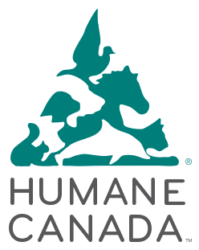If you plan to buy a puppy from a breeder, you need to know how to recognize a responsible, caring breeding operation and – just as important – where to find them in your area.
If you don’t take the time to carefully choose where you get your puppy, you could end up with a dog that suffers from serious medical issues or behavioural problems, causing you a great deal of heartache, frustration and expense. Worse, you could end up unknowingly supporting the cruel puppy mill industry.
Download the Humane Canada list of Essential questions to ask a breeder to see if your breeder of choice meets these criteria.
Internet classified sites are not the place to look for a purebred dog. It is virtually impossible to tell the difference between a reputable breeder and a puppy mill unless you do an in-person visit. Puppy mills and backyard breeders are known to use internet classifieds to promote their business and find potential customers. Reputable breeders rely on their own websites, word of mouth and their national or regional breed clubs for referrals.
To find a reputable breeder, go to the national or regional breed club or your local kennel club. The breed club should have a code of ethics that members must meet in order to join. You can also find rescue dogs available through breed clubs.
Dog breeding is a big responsibility. Those who don’t have the knowledge, time, space, love and money to breed and care for dogs at a high standard should not be breeding. Unfortunately, many people do it anyway because they can make a lot of money in the breeding business.
Good breeders put a great deal of time into caring for their dogs, researching and deciding which dogs to breed and screening potential buyers. They are very involved in their breed club, they participate in shows and other competitions and their dogs are a huge part of their lives.
They do all of this because they care – not to make money. Ethical dog breeders usually make, at most, a small profit from the sale of their puppies because most of the money their clients pay goes to cover expenses such as health screening for genetic disorders, stud fees, vet fees and registration.
The only way you can know for sure that a breeder is responsible and humane is to visit and see first-hand the conditions their breeding dogs and puppies are kept in. Be sure you visit before you hand over any money. You’ll need to ask specific questions and ask to see certain paperwork to make sure they meet the standards of a good breeder.
Below are the hallmarks of a good breeder.
A responsible, ethical breeder:
- Breeds dogs of only one or two breeds, and does not have a larger number of animals than they can reasonably provide with a good quality of life.
- Requires you to visit and will show you their dogs (including the mothers) and where they are housed.
- Has facilities that are clean and spacious and their dogs are healthy and well socialized.
- Keeps puppies clean, warm, well-fed and allows them to stay with their mother until they are weaned.
- Doesn’t allow puppies to go to new homes before 8 weeks of age.
- Raises their puppies in the home where they can become accustomed to household sounds, such as the phone, dishwasher, vacuum, people coming and going, etc.
- Is a member of their breed club and the national kennel club (in Canada, this is the Canadian Kennel Club), and adheres to their Code of Ethics. You can find the Canadian Kennel Club Code of Ethics here.
- Is very knowledgeable about the breed and asks you many questions to ensure your lifestyle, knowledge of dogs and attitude are a good fit for one of their puppies.
- Will talk openly about their breeding program and practices.
- Has working knowledge of genetics and will talk to you about genetic disorders prevalent in the breed and how they are working to prevent them.
- Screens all their breeding stock for relevant genetic disorders and removes affected animals from their breeding program. Affected animals are spayed/neutered and may be placed as companion animals as long as health issues are disclosed to buyers/adopters.
- Takes lifetime responsibility for their breeding dogs and the puppies they produce and will take back any animal of their breeding, at any time, for any reason.
- Does not breed animals younger than 18 months and stops breeding by middle age, which will vary depending on the breed.
- Stops breeding any female dog once it has delivered 3 to 4 litters if it’s a large breed, and 5-6 litters if it’s a small breed.
- Provides ongoing guidance and support to puppy buyers.
- Provides a contract that spells out the breeder’s obligations and the purchaser’s responsibilities, such as obedience classes, spay/neuter surgery and the general care of the puppy.
- Provides a guarantee of overall health and temperament, as well as absence of genetic disorders. The guarantee offers some financial reimbursement, not simply a replacement puppy.
- Provides puppy buyers with proper paperwork, including a bill of sale, Canadian Kennel Club registration papers, vaccination certificates and copies of genetic screening clearances for the sire and dam (father and mother) of the litter.
But they say they’re registered with the kennel club!
While breeders of purebreds should register their dogs with the Canadian Kennel Club (CKC), doing this alone does not guarantee that they treat their dogs humanely or do any medical screening. All it means is that the registered puppy is the offspring of two dogs that are both also registered as being purebred of the breed in question.
Registration happens by mail, and the CKC does not monitor or inspect the breeding facilities of its members or of breeders who register their puppies with the club.
Here are a few red flags common to puppy mills, brokers, irresponsible breeders and scammers:
- Not requiring you to visit them and their dogs.
- Not asking you anything about your experience with dogs, your lifestyle, etc.
- Offering to ship or deliver the puppy to you or meet you in a public place to hand it over. They may initially talk about you coming to pick up the puppy but, at the last minute, they suggest saving you the trouble and just meeting you somewhere.
- Offering puppies of many different breeds.
- Requires you to send money to another country.
- If you do visit, they bring out the puppy to you so you don’t see the mother, litter mates or where the dogs live. Keep an eye out for barns and sheds on the property that could be used for mass-breeding dogs.
- Doesn’t know anything about typical genetic disorders for the breed and doesn’t have their dogs screened by veterinary specialists (including: hip x-rays, ophthalmologist, cardiologist, etc.).
- Provides no guarantee of the puppy’s health or only a guarantee that requires you to send the puppy back.
Commercial breeders
Commercial breeders are large-scale breeders that have anywhere from dozens to hundreds of dogs of various breeds for sale. They either sell directly to the public, via ads in newspaper and internet classified sections, or they may sell to pet stores. Some are actually puppy mills that simply call themselves commercial breeders so that it sounds better. Others may provide clean facilities and sufficient staff, but the volume of dogs they have makes it impossible to provide the loving care and attention that a reputable breeder could provide in their home.
Backyard Breeders
This term is used for people who either intentionally breed one or a few dogs but have very little knowledge, or who have an accidental litter because they hadn’t got around to spaying their female dog yet. They may seem harmless, but there are so many of them that they make a substantial contribution to Canada’s pet overpopulation crisis.
Chances are you know someone who’s a backyard breeder, though you’ve probably never thought of them in those terms.
How about Bob from the accounting department at work who sent out an email last week to all employees about the adorable Cocker Spaniel pups his dog just had, who all need homes.
Or the young couple in another part of town advertising on Kijiji that their Cockapoo had a litter — the second in a year, apparently.
Or what about your friend, Sally, who kept meaning to get her 11-month old Labrador mix spayed but just never got around to it. One day, the kids let her out of the house by mistake and she had a quick rendezvous with the neighbour’s dog. His owners just never got around to neutering him either! Now Sally has to find homes for five puppies.

